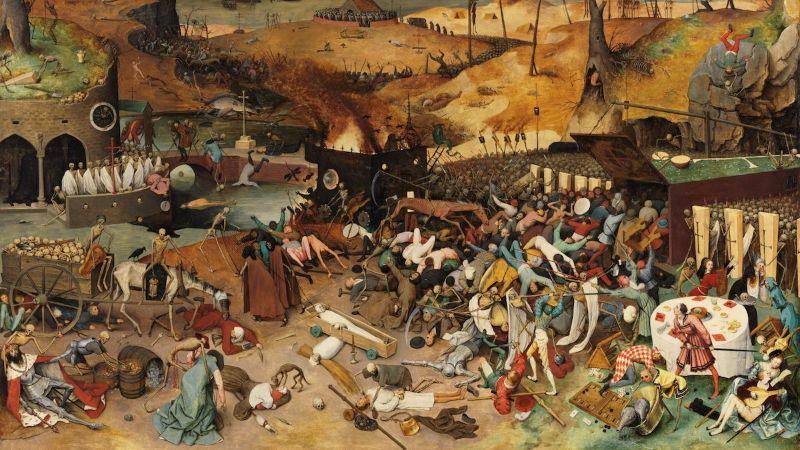The good old days, les bons vieux jours, los buenos viejos tiempos, die guten alten Tage, старые добрые времена, οι παλιοί καλοί καιροί… all human languages I have intimacy with host standard and widely-employed expressions that associate the good with the old.
Since one comes to this observation, it does not take a leap of an assumption to intuit that this association is a universal linguistic clue of a universally prominent psychological trait.
Google can aid to promote the above statement from an intuition to a conclusion… I picked up Mandarin as a language pretty much as alien to my Indoeuropean linguistic background as it gets. I Google-translated the phrases “the good old days” and “the good new days” and run them through a precise-match, quoted Google search. I got 350,000 and 20,300 results respectively.
Doing the same with a variety of languages, these figures remain remarkably analogous, in a well-below 10/1 ratio. The more general “the good old” vs “the good new” English comparison returned 53,300,000 to 957,000 results.
If tongues have anything to say about their speakers’ mentalities, one can draw this clear inference from this little experiment: Humans are predominantly pessimists.
But why is it that the average individual has this tendency to correlate the past with the good, the present with the bad, and the future with the worse?
Is it because the social context within which their mental and linguistic conceptions evolve steadily deteriorate?
Is the world becoming a worse place to live in?
The principal scope of this article is not to convince the 90+% of humanity that the world does not become a worse, but a much better indeed, place to live in. It primarily addresses the 10-% of people who do acknowledge the accelerating positive trend of human quality of life. But to make it easier for a wider audience to keep up with the subsequent arguments, let us briefly touch on the subject.
To begin with, we have to appreciate that the good and the bad are intrinsically relative and subjective notions, construed only in the context of social interactions. In very general terms, good is what benefits society and bad is what harms society, which leads us to a vicious circle since what is beneficial and what is harmful is again a matter of subjective interpretation.
There is obviously no straightforward method to measure how objectively good or bad anything is. If, for example, one defines the bad as the estrangement from Jesus or as the anyhow different, there is hardly anything that could be done or said to persuade one that the world is not doomed.
This leaves us with the most direct approach available – that most pessimists, too, would accept – of defining the quality of life according to measurable indicators of human welfare such as life expectancy. Whatever index related to global health and security you are going to look at, you cannot miss this most astounding improvement the average person’s life has undergone throughout the past few centuries.
Somebody may accept this fact but argue that because things have been going well does not necessarily mean that they will keep going well from now on. But neither does the truth of this statement mean that complaining about problems does much for solving them.
If you are one of those people who aren’t in the least ready to accept these facts, Factfulness by Hans Rosling may be a good book for beginning to see the world from a more positive angle.
If we hopefully are on the same page now, let’s ask the central question concerning this article:
Since life gets actually better, why do most people think otherwise?
I can think of two causally interrelated reasons I here intend to explain: a superficial, subconscious, caused one; and a fundamental, unconscious, causing one…
1) Ageing and pessimism
This first reason is rather straightforward and self-explanatory. People grow older and die. By default, humans tend to portray the world in the image and likeness of their own selves. It takes quite a surge of cognition for one to become capable of looking upon the world through a selfless, uncentralized, objective, holistic perspective.
While ageing, one’s self declines by design, leaving one’s mind with an evermore distant and vain nostalgia of a bygone, vigorous youth, and an evermore appalling fear of death. It is plainly natural for one individual to subconsciously mirror one’s own decaying condition to society as a whole.
This becomes even clearer when we ponder that humans also have the innate, egocentric disposition to credit themselves for all their successes but blame others for all their failures. It shouldn’t be surprising that most people will inadvertently denounce an allegedly disintegrating society as the cause of them getting older and weaker.
But what’s more intriguing is why this is so. What evolutionary advantage does such a pessimistic attitude facilitate to take hold within the meme pool of the collective human mind’s evolution?
2) Evolution and pessimism
One who has read Richard Dawkins’ The Selfish Gene, even when not necessarily agreeing with it on a methodological basis, should appreciate the parallelisms that can meaningfully be drawn between biological and mental evolution. For the rest of this argument, let us assume that a mechanism of natural selection is indeed in play throughout the process of embracing-or-discarding the ideas that constitute a human culture.
Under such an assumption, pessimism could ultimately be seen as the degree of resilience memes present against mutation. Let’s make the comparison with a gene.
A DNA molecule is designed with the propensity to make a precise copy of itself, albeit with an allowance of a small error margin that will make mutation at all possible. It seems to be in fine tuning for creating the optimal conditions for natural selection to take over. If mutation wasn’t permitted, a first DNA molecule would forever remain the same first DNA molecule. If significantly more mutation was permitted, stable, proven blueprints for efficient organisms couldn’t be stored, and organic chemistry would be but random chaos.
Similarly, if the human mind wasn’t at all receptive towards the adoption of new ideas, there wouldn’t be human minds as we know them building collective human cultures, and humans wouldn’t be able to boast a crucial difference from the rest of the animal kingdom. But if, on the other hand, most human minds weren’t predisposed to resist social change but readily adopted any new ideas that emerged, human collectives would lack the solid foundations needed to develop into efficient societies.
Assuming that this analogy is not coincidental, we may speculate that pessimism is the degree of resistance one mind is inclined to put forth in order to counter social change, which in its turn is an evolutionary filtering mechanism aiming to quickly eradicate useless ideas while testing the truly innovative ideas that will expedite the formation of more efficient societies.

